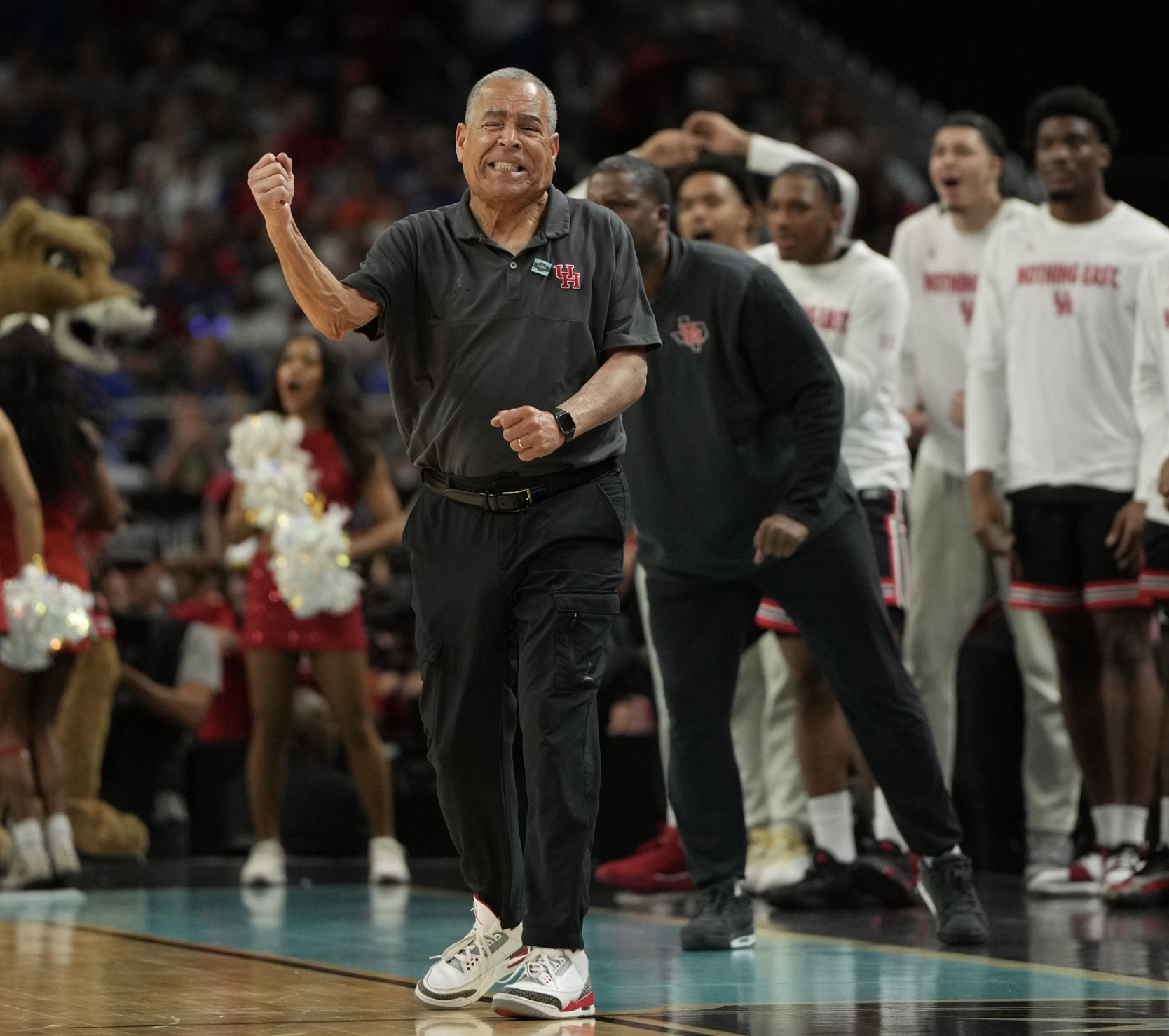
- Details
- By Levi Rickert
The Houston Cougars men’s basketball team, led by head coach Kelvin Sampson, are heading to the NCAA’s men’s basketball championship game on Monday night. The Cougars beat Duke Blue Devils 70-67 on Saturday night in San Antonio, Texas.
Sampson is a tribal citizen of the Lumbee Tribe of North Carolina.
Trailing by 14 with eight minutes remainsing in the game, the Cougars came battling back to defeat Duke.
Sampson was born in Laurinberg, N.C. and raised in Pembroke, N.C. — the heart of the Lumbee Tribe of North Carolina. Sampson is the only Native American head coach of a NCAA Division I men's basketball team.
Sampson has been coaching basketball for over 40 years, coaching eight years in the NBA and then for various NCAA men’s programs, including Michigan State University, Montana Tech University, Washington State University, University of Oklahoma, Indiana University, and the University of Houston.
He is one of only 15 coaches in NCAA history to lead four or more schools to the NCAA tournament.
This is the Cougar's first trip to the final since 1984. Despite having future NBA superstar players Clyde Drexler and Hakeem Olajuwon, Houston lost to the Georgetown Hoyas 84 to 75.
The Houston Cougars with a 35-4 record will face the Florida Gators on Monday night in the championship game at 8:50 p.m. - ET. If they win, it will be the first national title for the Cougars.
More Stories Like This
Native News Weekly (August 25, 2024): D.C. BriefsUS Presidents in Their Own Words Concerning American Indians
Next on Native Bidaské: Julian Brave NoiseCat on the Lumbee Nation’s 140-Year Fight for Federal Recognition
Hackers Compromise Native News Online Facebook Page
‘His stories can no longer be told.’ | Woman Pleads Guilty to 2016 Murder of Indigenous Master Woodcarver
Help us defend tribal sovereignty.
At Native News Online, our mission is rooted in telling the stories that strengthen sovereignty and uplift Indigenous voices — not just at year’s end, but every single day.
Because of your generosity last year, we were able to keep our reporters on the ground in tribal communities, at national gatherings and in the halls of Congress — covering the issues that matter most to Indian Country: sovereignty, culture, education, health and economic opportunity.
That support sustained us through a tough year in 2025. Now, as we look to the year ahead, we need your help right now to ensure warrior journalism remains strong — reporting that defends tribal sovereignty, amplifies Native truth, and holds power accountable.
 The stakes couldn't be higher. Your support keeps Native voices heard, Native stories told and Native sovereignty defended.
The stakes couldn't be higher. Your support keeps Native voices heard, Native stories told and Native sovereignty defended.
Stand with Warrior Journalism today.
Levi Rickert (Potawatomi), Editor & Publisher

